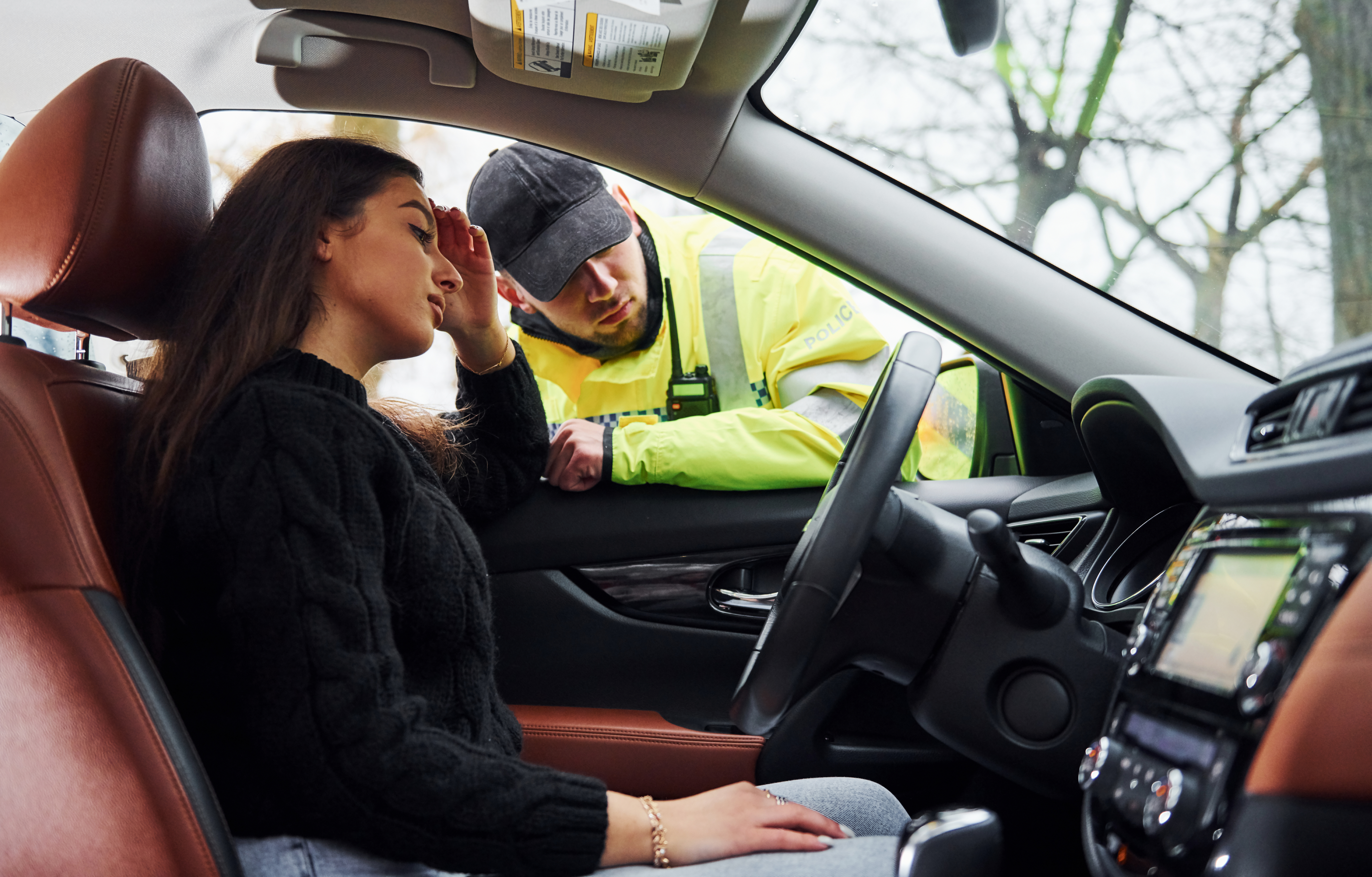Know Your Rights: A Guide to Field Sobriety Tests in California
Getting pulled over for a suspected DUI is a stressful experience. Your mind starts racing. You’re trying to remember everything you’ve heard about your rights. One of the most common, and often confusing, parts of a DUI investigation is the field sobriety test (FST). These roadside tests can feel like a high-stakes performance, but what exactly are they, and do you have to take them? In California, understanding the answers to these questions is crucial.
This guide will break down everything you need to know about field sobriety tests in California. We’ll cover what they are, the different types, your legal rights, and why your performance on them can be challenged in court.
The Purpose of Field Sobriety Tests
Field sobriety tests are a set of physical and mental exercises that a law enforcement officer uses to assess a driver’s level of impairment. Their primary purpose is to help the officer determine if they have probable cause to make a DUI arrest. The officer is looking for signs that your coordination, balance, and ability to follow instructions are compromised.
It’s important to understand that FSTs are not designed to be a definitive measurement of your Blood Alcohol Content (BAC). Instead, they are tools for building a case for a DUI arrest. An officer will observe your performance and use any signs of impairment to justify moving forward with the investigation.

Standardized vs. Non-Standardized Tests
Not all FSTs are created equal. The National Highway Traffic Safety Administration (NHTSA) has identified three tests that have a higher degree of scientific validity than others. These are known as the Standardized Field Sobriety Tests (SFSTs). While they are still not foolproof, officers are trained to administer them under specific conditions to maximize their reliability.
Let’s take a closer look at the three standardized tests.
1. The Horizontal Gaze Nystagmus (HGN) Test
This is an eye-tracking test. Nystagmus is the involuntary jerking of the eyes. During this test, the officer will ask you to follow a small object (like a pen or their finger) with your eyes, while keeping your head still. They will move the object slowly from side to side and watch for signs of nystagmus.
The officer is trained to look for three specific clues in each eye:
- The eye cannot smoothly follow the object.
- The nystagmus is distinct and sustained when the eye is at its maximum deviation.
- The onset of nystagmus begins before the eye reaches a 45-degree angle.
The HGN test can be highly technical and is often administered incorrectly. The officer’s report is based entirely on their subjective observation, making it a key area for an experienced DUI attorney to challenge.
2. The Walk-and-Turn Test
This test is designed to assess your balance and ability to perform multiple tasks at once. The officer will instruct you to take nine heel-to-toe steps along a straight line, turn, and then walk back nine heel-to-toe steps. Your arms should be kept at your sides.
The officer looks for eight clues of impairment:
- Losing balance while listening to the instructions.
- Beginning to walk before instructed.
- Stopping while walking to regain balance.
- Failing to touch heel-to-toe.
- Stepping off the line.
- Using arms for balance.
- Making an improper turn.
- Taking the wrong number of steps.
Even a completely sober person can struggle with this test. Factors like the surface you are standing on, the type of shoes you are wearing, or even a pre-existing medical condition can all cause you to fail.
3. The One-Leg Stand Test
As the name suggests, this test requires you to stand on one foot for a specific period. The officer will instruct you to raise one foot approximately six inches off the ground and hold it for 30 seconds while counting aloud.
The officer looks for four clues of impairment:
- Swaying while balancing.
- Using arms for balance.
- Hopping to maintain balance.
- Putting the raised foot down before the 30 seconds are up.
Like the walk-and-turn test, this test can be difficult even without any alcohol in your system. Age, weight, fatigue, or an injury can all affect your ability to stand on one leg. The officer’s subjective scoring of your performance is a significant aspect that a skilled defense attorney can scrutinize.
The Right to Refuse a Field Sobriety Test
This is one of the most critical pieces of information for any driver to know in California: Field sobriety tests are voluntary.
You have the right to politely refuse to participate in any of the physical and mental roadside tests. An officer is legally required to inform you of this right, but they often use language that makes the test seem mandatory. For example, they may say, “Will you participate in a few tests for me?” or “I need you to perform some roadside tests.”
Refusing an FST is not an admission of guilt. In fact, it often deprives the prosecution of one of the most subjective pieces of evidence they have to use against you.
FSTs vs. Chemical Tests: Know the Difference
It’s vital to distinguish between FSTs and chemical tests (breathalyzer, blood, or urine tests). California has an implied consent law, which means that by getting a driver’s license, you agree to submit to a chemical test if you are lawfully arrested for a DUI.
Here’s the key difference:
- Field Sobriety Tests (FSTs): Voluntary. There is no automatic penalty for refusing them, although the officer may still use your refusal, and their other observations, to establish probable cause for an arrest.
- Chemical Tests: Mandatory after a lawful DUI arrest. Refusal of a chemical test after a lawful arrest carries severe penalties, including a separate and automatic one-year driver’s license suspension.
An officer may ask you to take a Preliminary Alcohol Screening (PAS) test, which is a handheld breathalyzer given at the roadside. This test is also voluntary unless you are on DUI probation or under 21 years of age. An officer must tell you that the PAS is voluntary and that you have the right to refuse it.

Why FST Results Can Be Challenged in Court
Even if you choose to take the FSTs and “fail” them, all is not lost. An experienced DUI defense attorney can challenge the results on several grounds. The subjectivity and potential for error in these tests make them a weak link in the prosecution’s case.
Here are some common ways to challenge FST results:
- Improper Administration: The NHTSA has specific, strict guidelines for administering SFSTs. If the officer fails to follow these procedures—for example, by not giving clear instructions or not administering the test on a level surface—the results can be deemed unreliable.
- Environmental Factors: The conditions at the time of the stop can significantly impact a person’s performance. Was it windy? Was the ground uneven? Was there poor lighting from passing cars? All of these factors can be used to argue against the test’s validity.
- Medical and Physical Conditions: Many medical conditions, from inner ear problems to neurological disorders, can affect balance and coordination. Even minor injuries, fatigue, or stress can cause a sober person to perform poorly.
- Nervousness and Anxiety: Being pulled over by a police officer is an intimidating experience. The stress and fear can make it difficult to follow instructions and perform physical tasks, regardless of whether you’ve been drinking.
An attorney can use video footage from the officer’s body camera or dashcam to analyze the circumstances of the stop and the administration of the tests. This objective evidence can often contradict the officer’s subjective report.
The Bottom Line: Your Decision Matters
The decision to take a field sobriety test is a personal one, and it’s not always easy to make in the moment. However, being informed is your best defense. Understanding that these tests are voluntary and that your performance on them is not a definitive measure of impairment is the first step toward protecting your rights.
If you are pulled over for a suspected DUI, stay calm and be polite. You do not have to answer questions about whether you have been drinking. Politely decline to participate in FSTs. If you are lawfully arrested, remember that you are required to submit to a chemical test (blood or breath), but you still have rights.
Conclusion
Field sobriety tests are a tool used by law enforcement, but they are not the end-all, be-all of a DUI investigation. Their subjective nature and susceptibility to outside factors make them a common target for legal challenges. By understanding your rights, you can make a clear-headed decision in a tense situation.
Whether you refused the FSTs or took them and believe the results were inaccurate, the next step is to seek expert legal guidance. A skilled attorney can review the details of your case, challenge the evidence, and fight to protect your rights and your future. If you are charged with a DUI, contact The Win Law Firm today.
Disclaimer: This blog post is for informational purposes only and does not constitute legal advice. Always consult a licensed attorney for guidance specific to your case.
FAQs about Field Sobriety Test in California
1. Are field sobriety tests mandatory in California?
No, field sobriety tests are not mandatory for most drivers in California. They are voluntary. You have the right to politely refuse to take them. The only exceptions are if you are under 21 or on DUI probation, in which case a Preliminary Alcohol Screening (PAS) test may be mandatory.
2. What happens if I refuse a field sobriety test?
Refusing a field sobriety test is not an admission of guilt, and there is no automatic penalty for the refusal itself. However, the police officer may still use your refusal, along with their other observations (e.g., erratic driving, slurred speech, smell of alcohol), to establish probable cause to make a lawful DUI arrest. If you are lawfully arrested, you are then subject to California’s implied consent law, which requires you to submit to a chemical test (blood or breath).
3. What is the difference between an FST and a chemical test?
A Field Sobriety Test (FST) is a voluntary roadside test used by an officer to determine probable cause for a DUI arrest. A chemical test (breath, blood, or urine test) is a more definitive test to measure your BAC. Chemical tests are mandatory after a lawful DUI arrest due to California’s implied consent law. Refusing a chemical test after a lawful arrest results in an automatic one-year license suspension and increased penalties.
4. Can I still be arrested for a DUI if I refuse FSTs?
Yes. An officer can still arrest you for a DUI even if you refuse to take FSTs. They can base the arrest on other evidence and observations, such as the smell of alcohol, slurred speech, or poor driving patterns. However, by refusing the FSTs, you are denying the prosecution one of the most subjective and challengeable pieces of evidence they might use against you in court.
5. How can a lawyer challenge the results of an FST?
A skilled DUI attorney can challenge FST results by questioning the officer’s administration of the tests, highlighting external factors (like uneven ground, weather, or lighting) that could have affected your performance, and introducing evidence of pre-existing physical or medical conditions that could explain your performance. They can also review police reports and video footage to find discrepancies or procedural errors.
